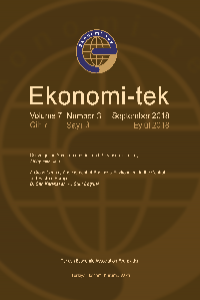The Turkish Economy after the Global Financial Crisis
The global financial crisis has demonstrated that a financially open economy has many areas of vulnerability. Even when a country keeps its own house in order, it remains at the mercy of developments in external financial markets. So, one lesson to bear in mind is that policymakers need to guard against not just domestic shocks, but also shocks that emanate outward from financial instability elsewhere. To accomplish this, complete financial openness is not the best policy. A second lesson is that Turkey’s prevailing growth strategy can neither be sustained nor generate enough employment. Therefore, it would be a mistake for the country to return to the status quo ante and resuscitate a model that fails to make adequate use of domestic resources. Most importantly, Turkey has to learn to live with a reduced reliance on external borrowing. The paper discusses the needed realignments in fiscal and exchange-rate policies.
Anahtar Kelimeler:
Turkish economy, financial crisis, financial open economy, fiscal and exchange-rate policies
The Turkish Economy after the Global Financial Crisis
The global financial crisis has demonstrated that a financially open economy has many areas of vulnerability. Even when a country keeps its own house in order, it remains at the mercy of developments in external financial markets. So, one lesson to bear in mind is that policymakers need to guard against not just domestic shocks, but also shocks that emanate outward from financial instability elsewhere. To accomplish this, complete financial openness is not the best policy. A second lesson is that Turkey’s prevailing growth strategy can neither be sustained nor generate enough employment. Therefore, it would be a mistake for the country to return to the status quo ante and resuscitate a model that fails to make adequate use of domestic resources. Most importantly, Turkey has to learn to live with a reduced reliance on external borrowing. The paper discusses the needed realignments in fiscal and exchange-rate policies.
Keywords:
Turkish economy, financial crisis, financial open economy, fiscal and exchange-rate policies,
___
- Hausmann, R., D. Rodrik, and A. Velasco, (2008), “Growth Diagnostics,” in J. Stiglitz and N. Serra, eds., The Washington Consensus Reconsidered: Towards a New Global Governance, Oxford University Press, New York.
- Kannan, P., (2008), “Perspectives on High Real Interest Rates in Turkey,” IMF Working Paper No. 08/251.
- Rodrik, D., and A. Subramanian, (2009), “Why Did Financial Globalization Disappoint?” IMF Staff Papers, Volume 56, Number 1.
- Rodrik, D., (2000), “Saving Transitions,” The World Bank Economic Review, Vol. 14, No. 3.
- Uygur, E., (2010), The Global Crisis and the Turkish Economy, Third World Network Global Economy Series No. 21, Penang, Malaysia.
- World Bank, Turkey: Country Economic Memorandum, Vol. II.
- ISSN: 2146-6173
- Yayın Aralığı: Yılda 3 Sayı
- Başlangıç: 2012
- Yayıncı: Türkiye Ekonomi Kurumu Vakfı
